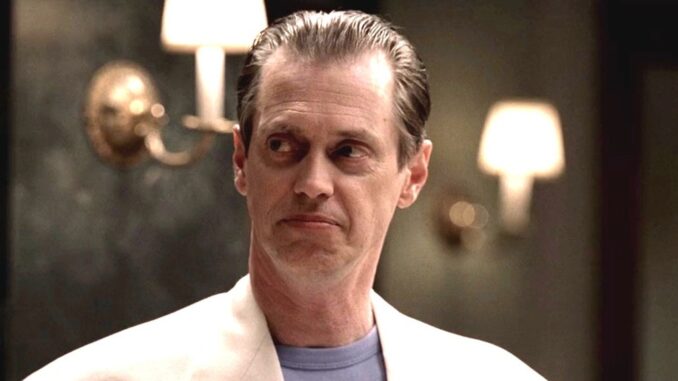
The Sopranos is widely regarded as one of the greatest television shows of all time. With its complex characters, gripping storytelling, and groundbreaking approach, it not only kicked off the Second Golden Age of Television but also left a lasting legacy. Yet, its ending remains a hot topic among fans and critics alike. In a recent discussion, actor Steve Buscemi shed some light on why the show had to conclude when it did, primarily due to the immense toll it took on its lead, James Gandolfini.
The Weight of Tony Soprano
James Gandolfini’s Burden
James Gandolfini’s portrayal of Tony Soprano is nothing short of iconic. He brought a depth and vulnerability to the character that resonated with audiences. However, as Buscemi pointed out, playing such a complex and intense role took a significant toll on Gandolfini.
“It got harder for Jimmy. That character really took a lot out of him,” Buscemi noted. Gandolfini poured so much of himself into the role that by the end, he was ready for it to conclude. While many co-stars were eager to keep the story going, Gandolfini’s well-being was a crucial factor in the decision to wrap things up.
The Emotional Investment
The emotional investment Gandolfini made in Tony Soprano went beyond just acting; it became a part of his life. The pressures of portraying a mafia boss, dealing with family drama, and navigating a life filled with violence and crime can wear anyone down. As Buscemi revealed, the intensity of the character’s struggles made it difficult for Gandolfini to sustain that energy for an extended period.
“Some of the other cast members wanted it to continue,” Buscemi shared, acknowledging the differing perspectives among the actors. But in Gandolfini’s case, he was satisfied with the show’s conclusion. It was a brave decision that ultimately preserved the integrity of the series and the legacy of its beloved characters.
The Enduring Legacy of The Sopranos
A Masterpiece in Television History
The Sopranos not only shaped the landscape of television but also set the standard for character-driven narratives. With 86 episodes, it outlasted other acclaimed series like Breaking Bad and Game of Thrones. This longevity speaks volumes about the quality of storytelling and character development that creator David Chase and his team achieved.
Many fans still regard the series finale—its famous cut-to-black moment—as one of the most impactful endings in television history. Instead of tying everything up neatly, it left viewers pondering the fate of the characters, particularly Tony Soprano. This bold move ensured that the show remained a topic of conversation long after it went off the air.
The Cultural Impact
The Sopranos influenced not just subsequent television shows but also a generation of filmmakers and writers. Its exploration of themes like identity, mental health, and the struggle between personal and professional life paved the way for more complex narratives in modern TV.
In interviews, even Buscemi acknowledged that no show could ever quite replicate what The Sopranos achieved. “I think some co-stars wanted the show to run for more episodes, but it was harder for James Gandolfini to continue,” he reiterated, emphasizing the unique challenges faced by the cast.
Steve Buscemi’s Career Post-Sopranos
A Shift in Roles
Steve Buscemi’s journey as an actor has seen a marked shift since his time on The Sopranos. While he had already established himself as a talented actor and director before joining the show, the experience changed his perspective on violence in storytelling.
Before his character Tony Blundetto met a brutal end at the hands of Tony Soprano, Buscemi had already experienced intense scenes, such as his infamous demise in Fargo. But post-Sopranos, Buscemi found that he had less tolerance for the violence often depicted in roles.
In a candid interview with GQ in 2020, he admitted, “I don’t have the tolerance for violence that I used to.” This realization prompted him to seek out different types of roles that didn’t revolve around brutality.
Exploring New Frontiers
Following The Sopranos, Buscemi starred in Boardwalk Empire, another HBO hit where he played Nucky Thompson. While the series was rife with violence, it also allowed Buscemi to explore more nuanced emotions and character dynamics. However, it was clear that his experiences on The Sopranos had impacted his approach to such themes.
Recently, Buscemi has ventured into different genres, including voice acting for animated films like Transformers One. He’s also set to collaborate with director Taika Waititi on an upcoming project, indicating a desire to expand his range and take on lighter roles. This evolution showcases Buscemi’s adaptability and willingness to redefine his career after such a defining role.
Conclusion
The Sopranos will always be remembered not just for its groundbreaking storytelling but also for the personal sacrifices made by its cast, especially James Gandolfini. Steve Buscemi’s insights into the challenges faced during the series shed light on why it had to end when it did.
As fans continue to celebrate the show’s legacy, it’s fascinating to see how it shaped the careers of those involved. For Buscemi, it sparked a transformation in how he approached his craft, allowing him to explore new avenues while leaving behind the weight of violence that defined much of his earlier work.
FAQ
Q: Why did The Sopranos end when many cast members wanted it to continue?
A: The decision to end The Sopranos was largely influenced by James Gandolfini’s emotional and mental toll from portraying Tony Soprano. He felt satisfied with the show’s conclusion, which ultimately preserved the integrity of the series.
